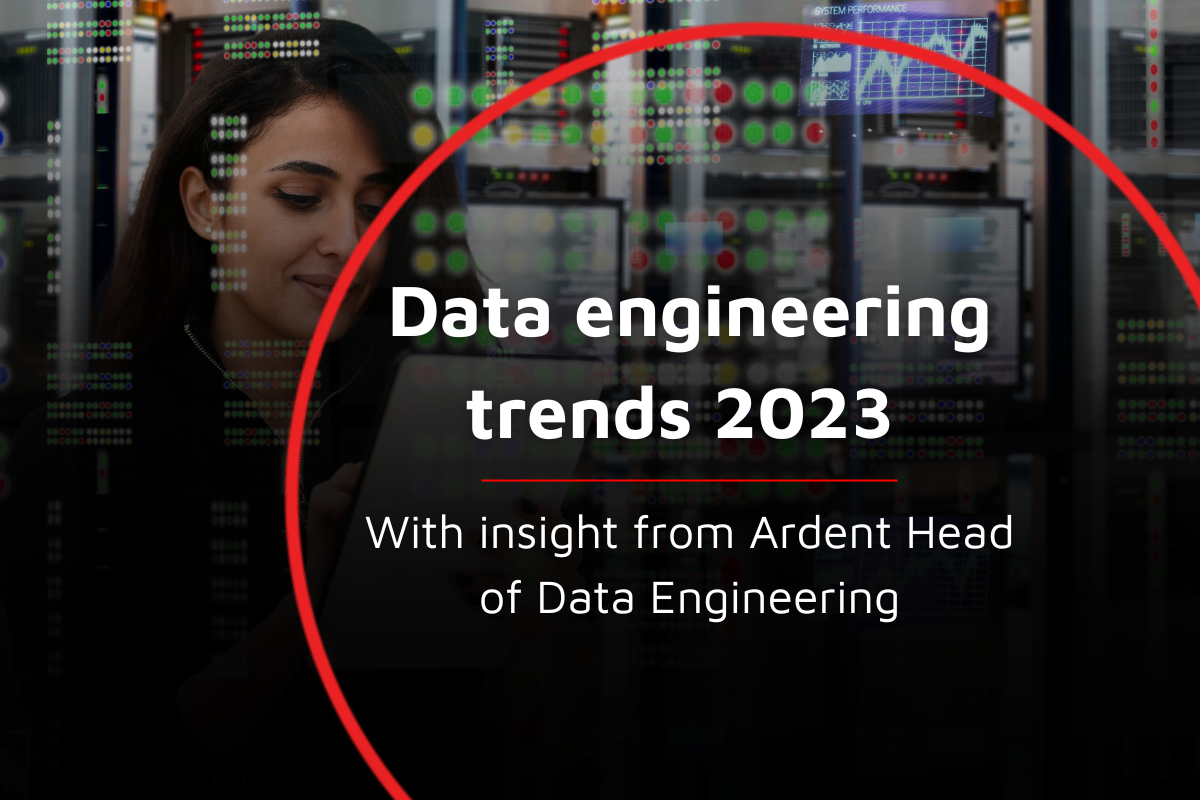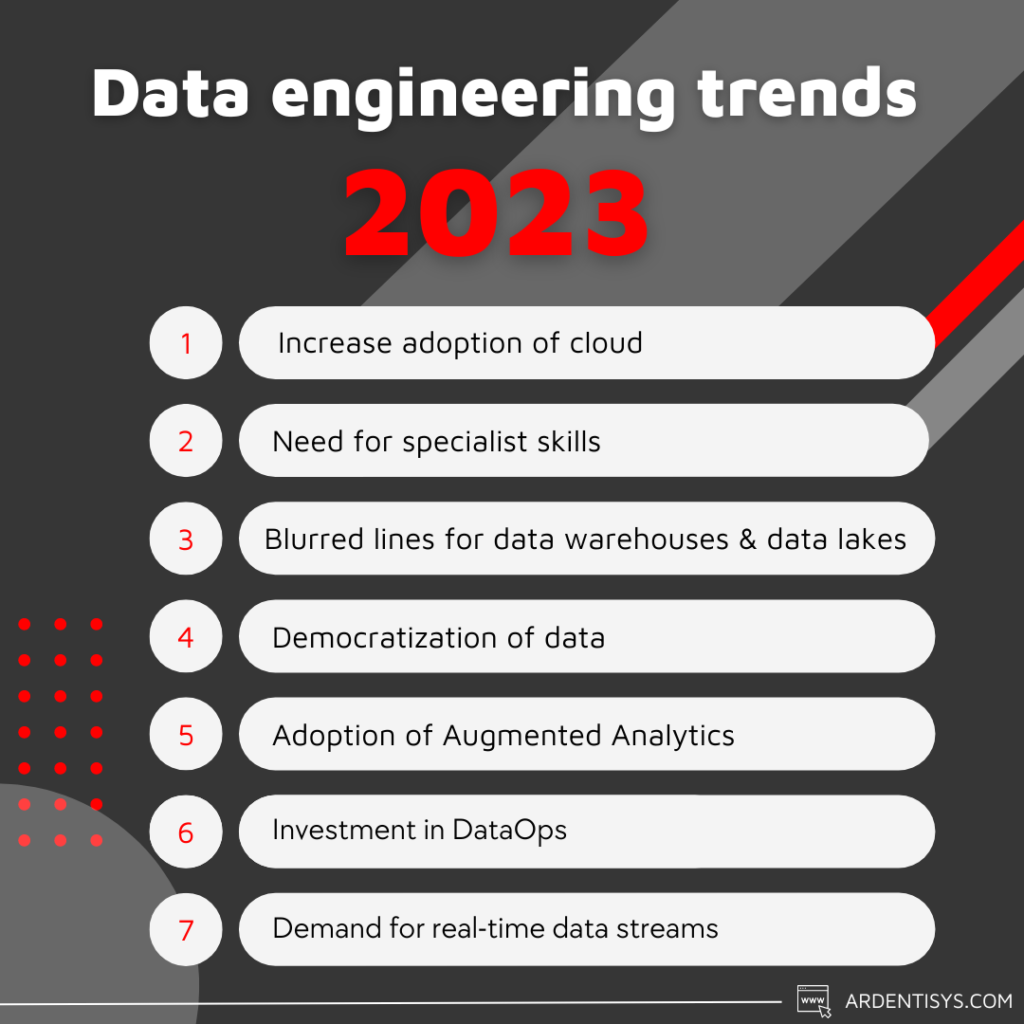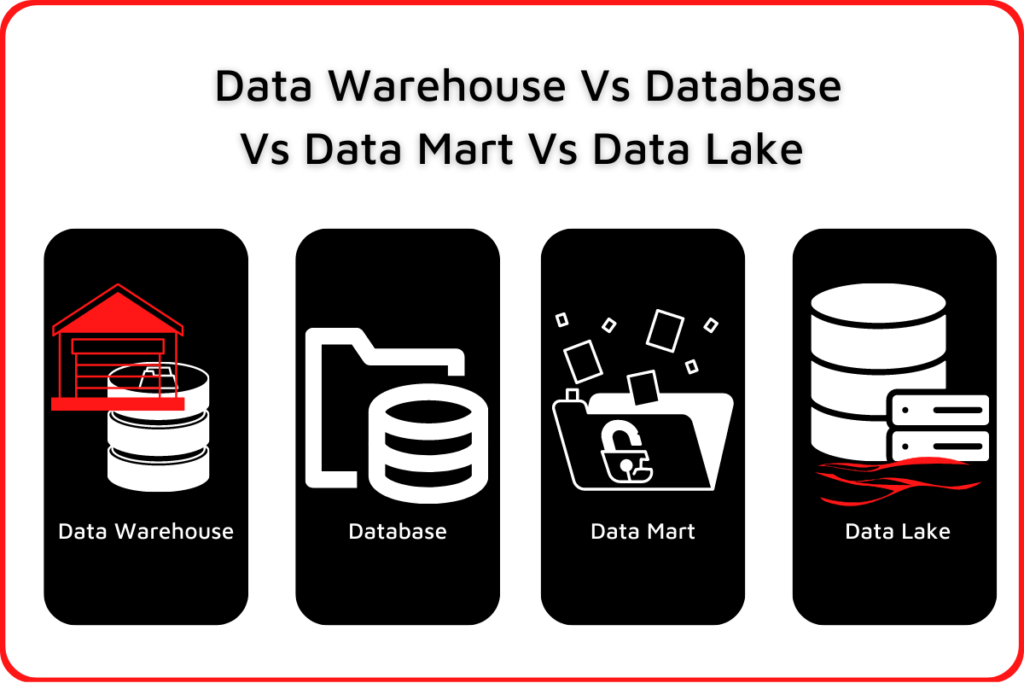Data engineering trends 2023 with insight from Ardent Head of Data Engineering
23 February 2023 | Noor Khan

With organisations reassessing their data priorities at the beginning of each year, we look at some key data engineering trends of 2023 with insights from Ardent Head of Data Engineering.

Increase adoption of cloud
As highlighted by Monte Carlo Data, it is predicted that the cloud will manage 75% all of data workloads, this is down to the growing adoption of the cloud for the invaluable benefits it offers. Businesses of all sizes across many industries can leverage the power of the cloud to remain competitive, save costs and scale in line with their requirements. We will continue to see businesses adopt the cloud in 2023 and beyond.
“Adoption of cloud is increasing day by day across all industries and for good reason. The management of infrastructure, the real-time testing capabilities, test at a scale and the ability to scale vertically and horizontally, on-premise cannot compare. Even if we look back five years, we can see how exponentially data is growing and cloud is the present and the future.”
Laxman Amrale, Head of Data Engineering at Ardent
The need for specialist skills
Data teams are typically split into three key stages, collecting, cleansing and analysing. This structure of data teams works well, however, there will be an increasing demand for the segmentation of data teams with specialist roles being introduced. Some roles we predict will come into play are Data Reliability roles, DataOps roles, Data architect roles and data product managers.
This will be to further improve the key areas of development in 2023 and essentially will look to remove inefficiencies, make organisations more agile and save costs.
“Rightly so, data is becoming a focal point for organisations, which then will feed into the requirement of specialists' skills. Building great infrastructure is great, but maintaining it to make data usage is imperative. The requirement of data reliability, availability and continuous uptime has created the demand for Data Reliability and Data Ops roles”.
Laxman Amrale, Head of Data Engineering at Ardent
Blurred lines between data warehouses and data lakes
Traditionally there is a clear distinction between a data warehouse and a data lake, we have written multiple articles about it (Exhibit A: How does a data warehouse, database, data mart and data lake work together?, Exhibit B: Data Warehouse or a Data Lake – Key differences and choosing what is right for you ). However, with some of the global technology vendors launching new technologies and features we can expect to see some blurred lines e.g., Databricks Unity catalogue technology enabled the structure and metadata to be to the storage of data in data lakes.

Democratization of data
Democratization of data is likely to become essential in a bid to improve efficiency, create a productive workplace and build a data-driven organisation. Democratization of the data is the process of making data accessible to everyone in the organisation that needs it or to whom it is relevant. This will ensure that those that need access to the data can do so without having to gain permission and access, which may take days or weeks. There are multiple benefits of data democratisation which will make it a worthwhile investment and including:
- Create a data-driven organisations
- Drive well-informed decision making
- Save time and increase productivity
- Empower your people with data skills
Adoption of Augmented Analytics
Augmented analytics refers to the processes of analytics being automated to deliver insights relying on technologies such as AI (Artificial Intelligence), ML (Machine Learning) and (NLP) Natural Language Processing. It is predicted that the adoption of AA will reach new heights within the year as it offers more accurate and reliable results giving data science and engineering teams the to dive in deeper to gain powerful insights to further drive well-informed decisions. With the increase of both structured and unstructured data, organisations especially those dealing with masses of data will look for a better way of engaging with analytics, incomes AA.
“Many large organisations are already successfully employing AI and ML when it comes to analytics to drive those rich insights to drive decision making so many other businesses will follow suit in the upcoming year”.
Laxman Amrale, Head of Data Engineering at Ardent
Investment in DataOps
DatOops is a relatively new practice in the world of data engineering and is set to become prominent in 2023 with Forbes highlighting 73% of organisations are investing in DataOps. It is the practice which puts people first to eliminate miscommunication between key stakeholders and data teams and help increase efficiency with agile methodologies. DataOps is built on three core practices and these include:
- Operationalisation – Ensuring your operations are robust and resilient to manage dynamic data environments.
- Data accessibility – Data flows in real-time and organisations need access to their data in real-time as well as any new data that is produced.
- Agility – With data, technologies and systems changing in a continuously unpredictable way, organisations must ensure agility within their data infrastructure to keep up.
Although Dataops may seem like a complex practice, it is simple with the aim to make organisations proactive, agile and efficient.
“Data does not sit around idle, it’s a continuous process, therefore to ensure operational stability and excellence, there is a demand for DataOps and an investment in DataOps by many businesses. We will continue to see this grow with further investment in ensuring data accuracy, reliability and uptime.”
Laxman Amrale, Head of Data Engineering at Ardent
Demand for real-time data streams
“We will continue to see a rise in real-time data streaming with many leading cloud vendors launching technologies to meet this demand for real-time data streams including the like of AWS with Kinesis Data stream, Kinesis Firehouse. In fact, we collect real-time TV broadcasting data for one of the biggest broadcasting media companies in the world and also provide ongoing operational monitoring and support to ensure data accuracy, authenticity and availability ” – Laxman Amrale, Head of Data Engineering at Ardent
Read the full story on making data science efficient with expert operational monitoring and support
Ardent data engineering services
Ardent have been delivering excellence in data for over 15 years to clients across the world. We look forward to seeing how the data engineering landscape evolves and how we can help support, and innovate our clients this year. If you are looking:
- Increase the adoption of cloud
- Add specialist skills to your teams whether it's on an ongoing basis or a project basis
- Democratize your data
- Implement augment analytics
- Invest in dataOps
We can help. With a proven track record of success, the Ardent data engineering team are proficient in world-leading technologies and will work with you to fulfil your data and business requirements.
Discover how our clients are succeeding with thier data:
- Monetizing broadcasting data with ensured, timely data availability for real-time, mission-critical data
- Driving growth for world-leading brands with powerful insights
- Empowering businesses to create targeted TV advertising with a highly sophisticated data indexing tool to process a variety of data
Get in touch to get started or explore our data engineering services.
Ardent Insights

Are you ready to take the lead in driving digital transformation?
Digital transformation is the process of modernizing and digitating business processes with technology that can offer a plethora of benefits including reducing long-term costs, improving productivity and streamlining processes. Despite the benefits, research by McKinsey & Company has found that around 70% of digital transformation projects fail, largely down to employee resistance. If you are [...]
Read More... from Data engineering trends 2023 with insight from Ardent Head of Data Engineering

Stateful VS Stateless – What’s right for your application?
Protocols and guidelines are at the heart of data engineering and application development, and the data which is sent using network protocols is broadly divided into stateful vs stateless structures – these rules govern how the data has been formatted, how it sent, and how it is received by other devices (such as endpoints, routers, [...]
Read More... from Data engineering trends 2023 with insight from Ardent Head of Data Engineering

Getting data observability done right – Is Monte Carlo the tool for you?
Data observability is all about the ability to understand, diagnose, and manage the health of your data across multiple tools and throughout the entire lifecycle of the data. Ensuring that you have the right operational monitoring and support to provide 24/7 peace of mind is critical to building and growing your company. [...]
Read More... from Data engineering trends 2023 with insight from Ardent Head of Data Engineering






